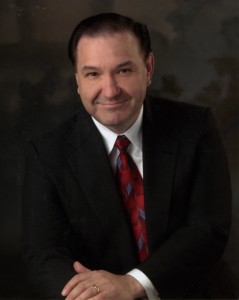Why did OK Gov. Fallin flex her veto muscle?

By Patrick B. McGuigan | Oklahoma Watchdog
OKLAHOMA CITY — Gov. Mary Fallin’s veto of 15 House bills in a single day last week was a state record for a governor while a Legislature was
SYMPATHETIC TO VETOES: Oklahoma historian Bob Burke, author of dozens of biographies and other histories centered around the Sooner State, said OK Gov. Mary Fallin “has appropriately put the brakes on by vetoing a number of the measures that have bad unintended consequences.”
still in session.
Fallin set the record intending to bring legislators to the negotiating table on the budget and other big issues she said they were avoiding. The vetoes questioned the seriousness of this Legislature.
“The mere volume of bills causes silly laws to be passed, thus forcing the governor to veto them,” political historian Bob Burke told Oklahoma Watchdog. “Last year, the Legislature passed the most drastic workers comp reform in history, yet only a handful of legislators have admitted to me that they read the bill.”
Burke, author of several dozen biographies and histories, said, “The days of powerful (legislative) leaders are gone and hundreds of bills on every conceivable topic are filed each year. Legislators do not have the time to read all the bills. The bills are passed without due consideration of unintended consequences.”
Burke is explicitly sympathetic with the Fallin vetoes. “The governor has appropriately put the brakes on by vetoing a number of the measures that have bad unintended consequences.”
Among others, Fallin vetoed a bill that would make the jurisdiction of county commissioners a state rather than local issue and a bill that limited curbs on gun regulations in state or federal jurisdiction.
Unspoken in her veto messages, but a part of her explanation to reporters, was Fallin’s disappointment in what the Legislature, particularly the House, has failed to do: pass a state Capitol repairs bond issue; dragging its feet on a major pension reform measure; and not finding the money to finish the American Indian Cultural Museum on the Oklahoma River in Oklahoma City.
Fallin’s irritation with the Legislature is climbing. She has vetoed 63 bills during her administration, 11 in both 2011 and 2012; 17 in 2013; and 24 as of May 2 this year.
“The number of vetoes seems to be related to the working relationship between the governor and legislative leaders,” Burke said. “Many fewer bills were passed by the Legislature 40 years ago.”
Although the state House voted to override one of Fallin’s recent vetoes, the Senate seems unlikely to follow suit.
Governors here have long exercised their veto power more vigorously at the end of sessions — after House and Senate members have gone home and cannot attempt overrides.
Until the past two decades Gov. Johnston Murray, a Democrat, held the record for after-session vetoes with 20 in 1953. Murray, too, vetoed bills out of frustration, punctuating what he called a ‘do-nothing session,” according to Robert Blackburn, an author who runs the Oklahoma History Center.
Murray, like Fallin, took to battling members of his own party, Blackburn said.
But as the Republicans made their ascent for control of state government, Republican governors such as Frank Keating, who vetoed a record 302 bills from 1995 through 2003, used the veto as a weapon against legislatures controlled by Democrats.
Democratic Gov. Brad Henry returned the favor, vetoing 154 bills between 2003 and 2011, 22 in a single day, as Republicans gained control of both houses.
Burke said he thinks as the number of bills passed by Oklahoma legislatures rises, so will the number governors veto.
“We would all be better off if legislative leaders would screen the high volume of bills and prevent those without substance or usefulness to ever see the light of day. That is the most efficient use of good, strong legislative leadership,” Burke reflected.
You may contact Pat at pmcguigan@watchdog.org .







